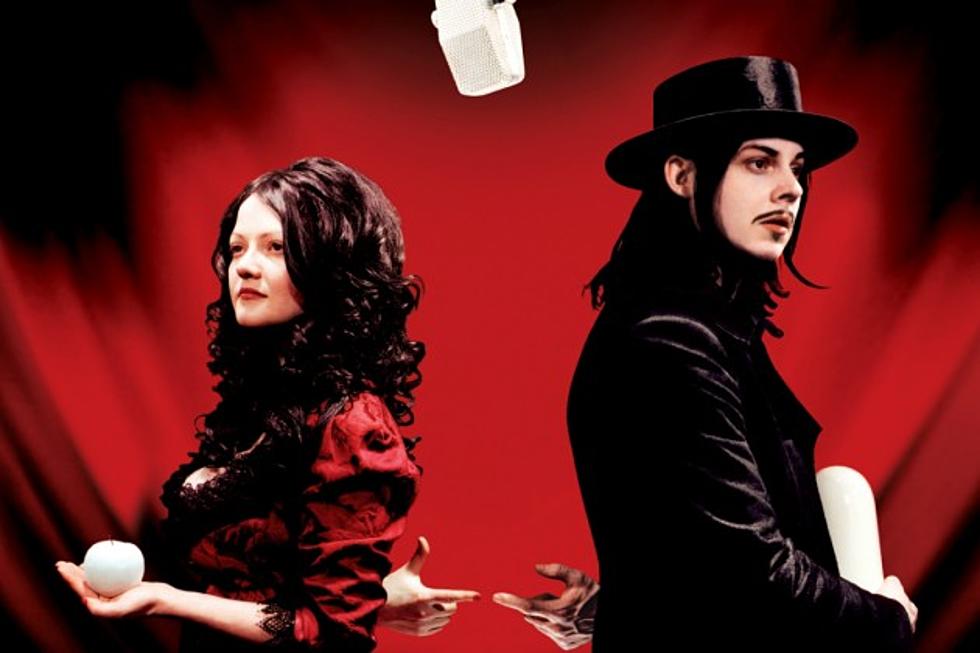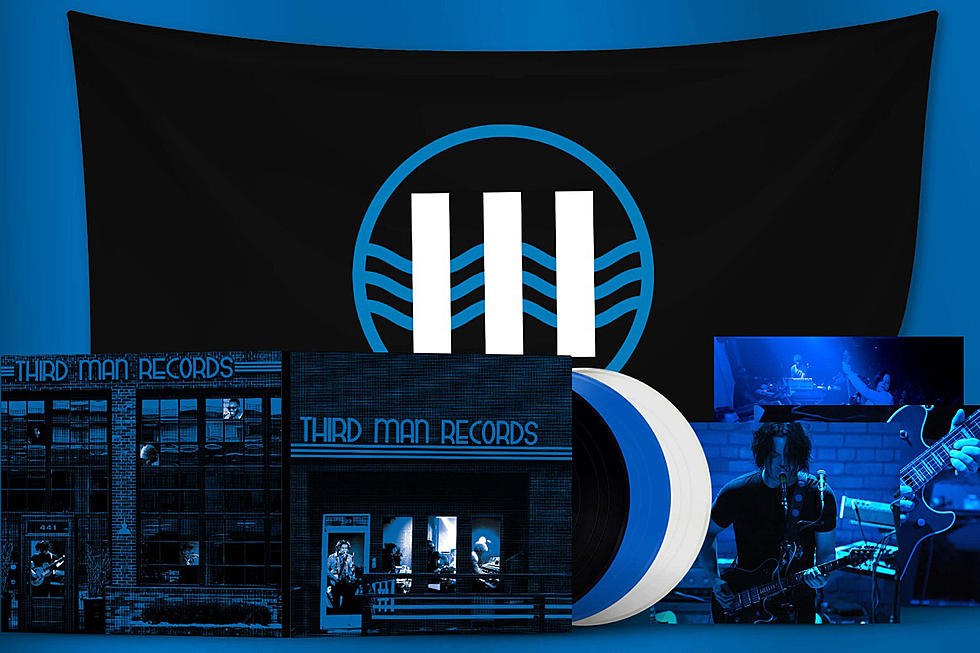
10 Years Ago: The White Stripes Tell The Truth On ‘Get Behind Me Satan’
From Robert Johnson's Faustian bargain at the crossroads to Jimmy Page's interest in black magic, rock lore is full of run-ins with the Devil. Jack White's ascension into rock's pantheon of immortals may not have involved an encounter with the Dark Lord himself, but it's safe to assume they're kindred spirits. After all, the greatest trick the Devil ever pulled was convincing the world he didn't exist, and White spent the first half of his career with the White Stripes trying to replicate that feat, obfuscating his true origins and intentions.
But after the massive success of their 2003 album Elephant, led by the world-conquering chant of “Seven Nation Army,” no amount of spin or winking mendacity could shield Jack and drummer Meg White from the public's glare. The expansive, varied material on their subsequent album, Get Behind Me Satan, indicated Jack was sick of the spotlight and bored with the duo's self-imposed constraints, and it was immediately hit with the "transition album" label. But 10 years after its June 7, 2005, release, I'd argue that rather than transitory and uncertain, Get Behind Me Satan was a calculated sleight of hand. White obliterated his rule-of-threes structure (guitar-vocals-drums) to distract from the personal truths he revealed on the album, in keeping with the band's tradition of misdirection. The result was arguably the most authentic White Stripes release and the one with the most artifice, a veritable urtext for a duo that began as a married couple pretending to be siblings.
"Truth is sort of the number one theme throughout the whole album," White told NPR ahead of the LP's release in 2005 — a significant admission since it was never clear when White's lyrics were autobiographical and when they were tall tales on those first four White Stripes albums. That directness on Satan was nearly as jarring as the musical shifts — here was Jack White chronicling the paranoid fantasies and self-consciousness stemming from his newfound fame. "The Nurse" addressed trust issues, "Little Ghost" was a tale of unrequited love, "Take, Take, Take" examined entitlement and celebrity, "As Ugly As I Seem" was self-loathing, "Red Rain" targeted dishonesty. These were his most vulnerable songs, and the fact that Satan was composed and recorded in a two-week frenzy of activity — in White's own house — seems to suggest that these were all instantly accessible emotions at the tip of his brain. The conspicuous (for White) lack of cover songs also feeds into this theme: These were all his words, unfiltered.
So if this was the truest version of Jack White ever put to tape, why did the most meaningful genre in his life, guitar-based blues, take a back seat to pianos, marimbas and mandolins? Well, the Stripes were obsessed with separating their personages from the art itself, childlike weirdos play-acting as blues freaks. Satan flipped the script; here we had an earnest narrator lording over unfamiliar musical constructions. He balanced the equation by making the diversions come from elsewhere — namely, more garish outfits and more indulgent arrangements. Look at the album artwork up top, and notice that the only thing that isn't patently absurd (and thus, is "real") is the microphone.
On the surface, the resultant music seems like a scatterbrained collection of sounds. The piano bar struts on "My Doorbell" and "The Denial Twist" sit alongside the mecha-glam stomps of "Red Rain" and "Blue Orchid." Melodic country ditties contrast with the dissonant freakout of "The Nurse." But unifying it all was a full-bodied quality that the band had never achieved before, giving the effect of a rock opry based on Jack White's psyche.
Raging blues and warped childishness would return two years later on the final White Stripes album, Icky Thump, making the revealing nature of Get Behind Me Satan seem more stark, like a purging that had to happen before the band flamed out. White is still fiercely ambivalent about the nature of his celebrity today, regardless of how many headline-making collaborations, open letters or Tidal commercials he tallies. But a decade ago, he was a media-averse multi-tasker coping with rock stardom for the first time, and Get Behind Me Satan was his cathartic breakthrough. The album doesn't sound the way it does because it was the work of a band in flux, it sounds the way it does because Jack White needed a new way to hide in plain sight with his demons. Just like the Devil.
Worst to First: Every Jack White Album Ranked
More From Diffuser.fm









